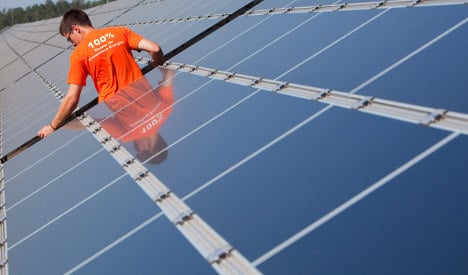According to state government sources, several eastern and southern states want the Bundesrat to hold off passing an overhaul of the Renewable Energy Act with the hope of making fewer reductions in government support for the solar industry.
Environment Minister Norbert Röttgen wants to cut solar subsidies by 11 to 16 percent starting in July. But the states where solar firms are located want cuts of only 10 percent, fearing anything more could hurt the industry and jeopardise jobs.
The Renewable Energy Act, or Erneuerbare-Energien-Gesetz (EEG) in German, guarantees producers of solar energy access to the grid at a set kilowatt price. But in order to account for the fact that technology gets cheaper and better each year, the feed-in tariffs decrease from year to year.
Röttgen believes dramatically cutting solar subsidies will lower energy prices for consumers and boost competition.
Since the Bundestag, Germany’s lower house of parliament, has already approved the reform of the EEG, the states cannot block the cuts forever. They can, however, raise pressure on the federal government by calling up a parliamentary mediation committee in Bundesrat to delay its implementation.
“When people have solar panels on their roofs and they see at the end of the day how much power they added to the grid they begin to develop an idea of what kilowatt hour really is,” said Saarland’s Environment Minister Simone Peter on Thursday. “They start to change their consumption and support larger energy facilities in their region.”
Under the new EEG, subsidies on roof installations will be cut by 16 percent and for solar parks it would be reduced by 15 percent. Panels on so-called conversion sites such as old army bases and rubbish dumps would see a cut of 11 percent. Solar energy units on farmland will no longer receive subsidies at all.



 Please whitelist us to continue reading.
Please whitelist us to continue reading.
Member comments